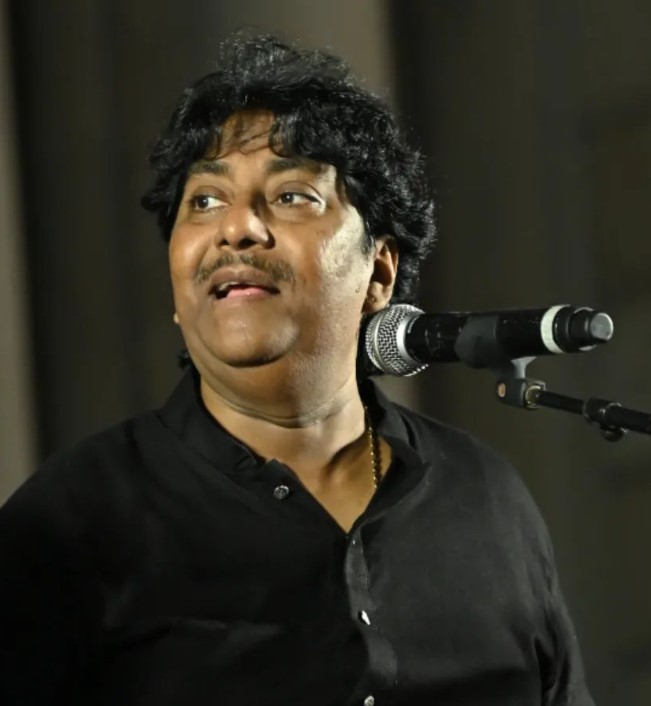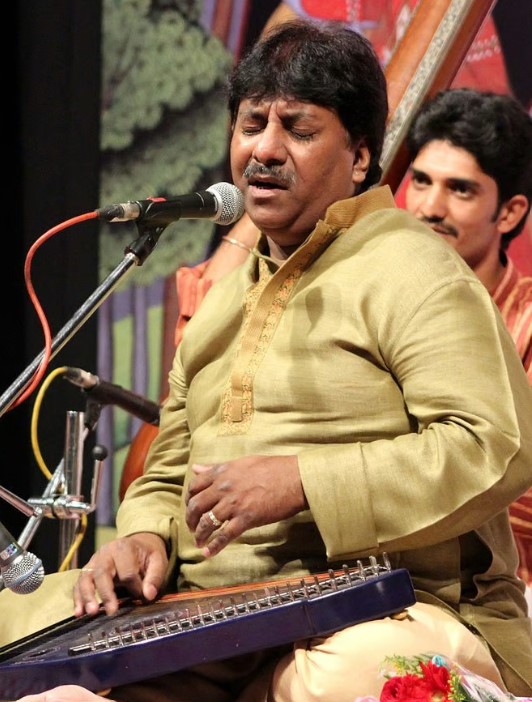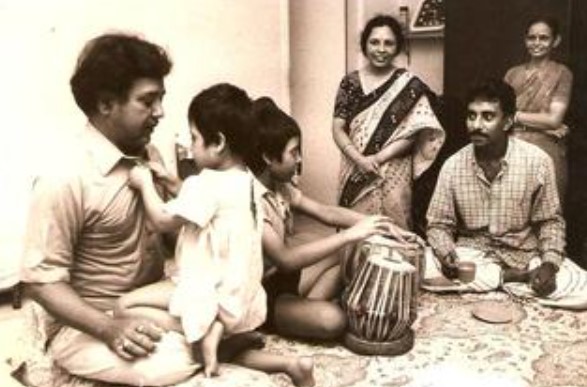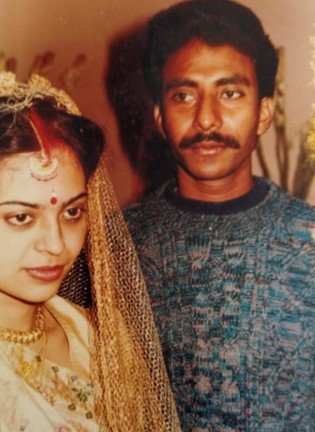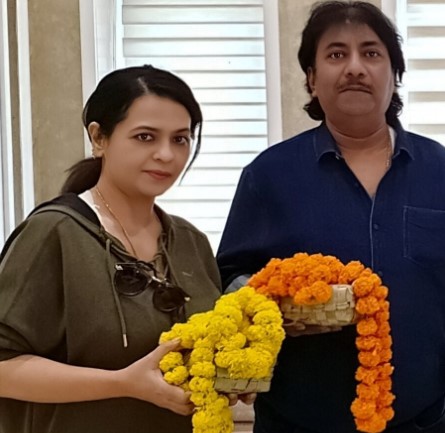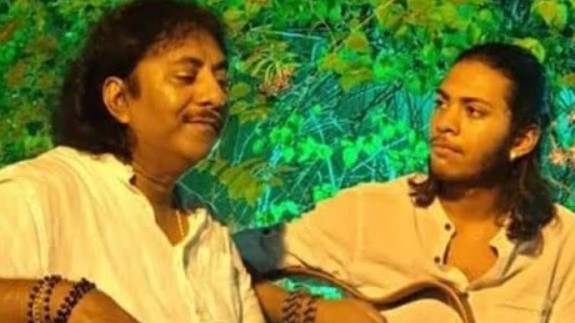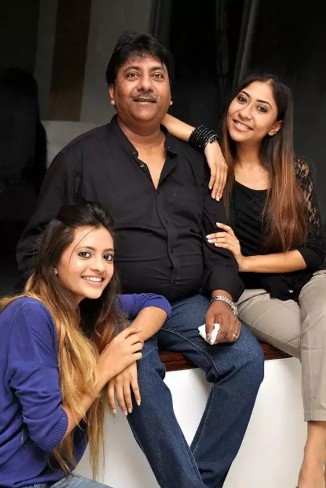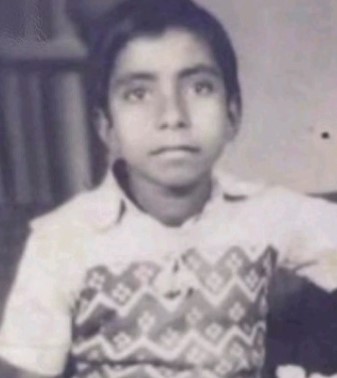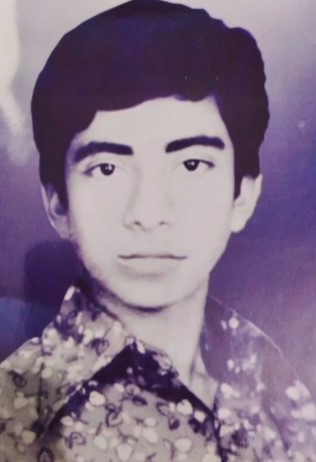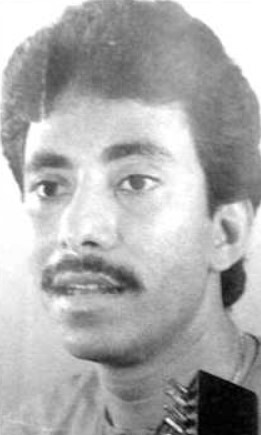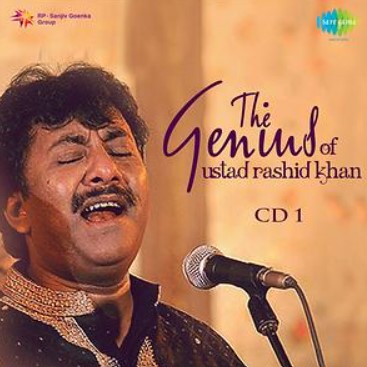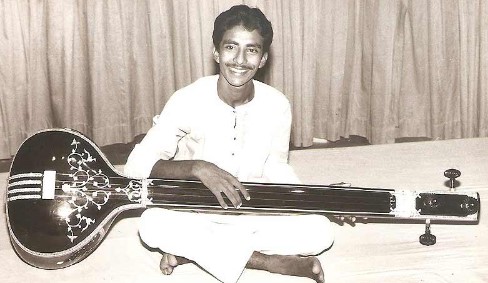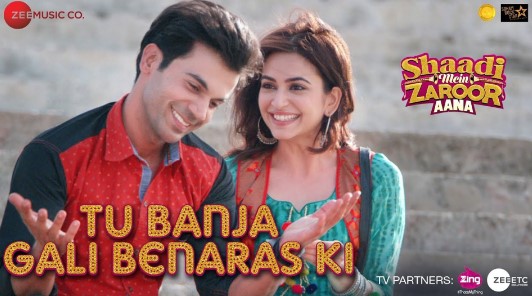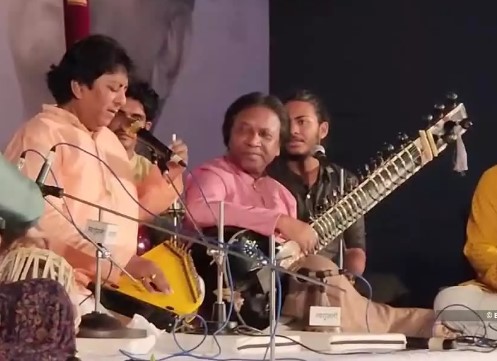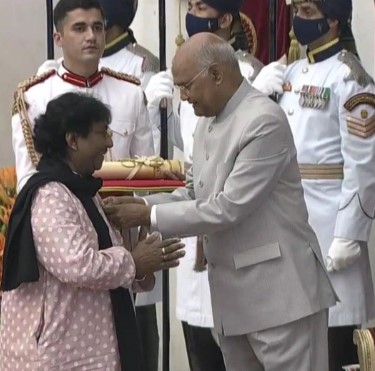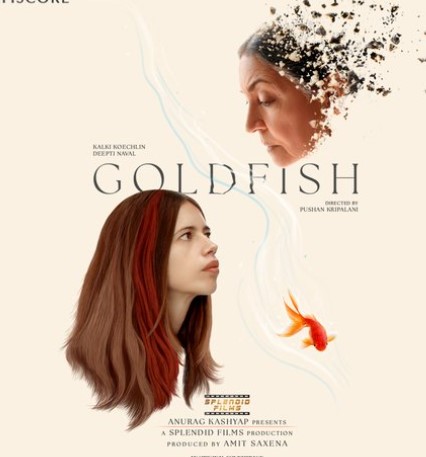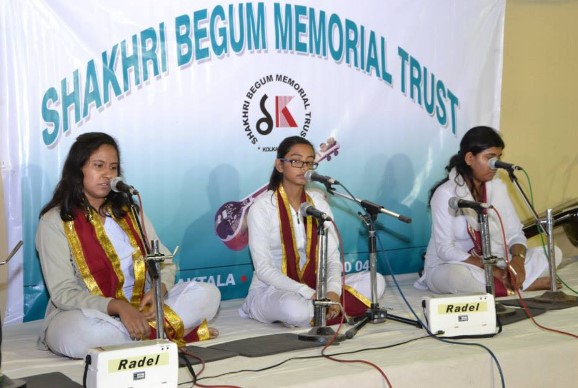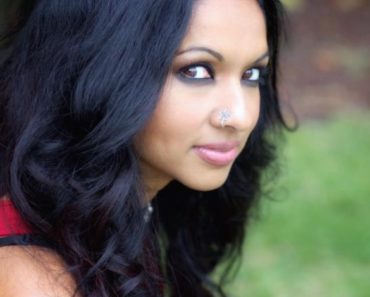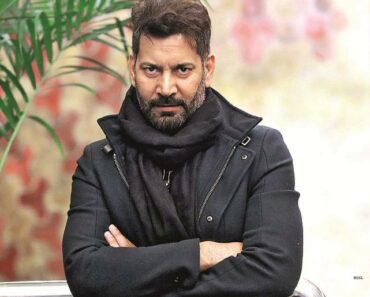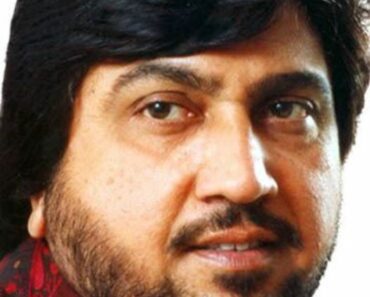Rashid Khan (1968-2024) was a well-known Indian classical musician who specialized in Hindustani music. He belonged to the Rampur-Sahaswan Gharana and was the great-grandson of gharana founder Inayat Hussain Khan. Pandit Bhimsen Joshi once remarked that Rashid Khan was a guarantee for the future of Indian vocal music. Rashid Khan was conferred with the Padma Shri and the Sangeet Natak Akademi Award in 2006 for his contributions to the field of music. In 2022, the Indian Government honoured him with the Padma Bhushan, which is the third-highest civilian award in India.
Contents
Wiki/Biography
Rashid Khan was born on Monday, 1 July 1968 (age 55 years; at the time of death) in Sahaswan, Budaun, Uttar Pradesh, India. His zodiac sign was Cancer. He did not receive formal education. [1]The Hindu Rashid Khan’s mother, Shakhri Begham, hailed from a family of musicians in Badaun, Uttar Pradesh. Her uncle, Ustad Nissar Hussain Khan, was a highly respected figure in the Sahaswan gharana. Shakhri Begham nurtured a dream of raising her two sons to become renowned musicians like her uncle. However, she was depressed when she lost her younger son. Shakhri Begham passed away when Rashid Khan was four years old.
Physical Appearance
Height (approx.): 5′ 6″
Hair Colour: Black
Eye Colour: Black
Family
Parents & Siblings
His father, Hamiz Reza Khan, was a Sufi singer.
His mother’s name was Shakhri Begham.
Wife & Children
Although Rashid Khan did not receive a formal education, he admired educated and beautiful women and desired to marry one without regard for caste or creed. He met Joyeeta (Soma) Basu, a Bengali girl from Guwahati, at a wedding reception, and soon they decided to get married. Their long phone calls worried Rashid’s strict grandfather, who opposed the decision. However, Rashid, determined at 23, went ahead and married Soma, with the support of his maternal uncle, Ustad Ghulam Mustafa Khan. On 2 December 1991, he got married to Joyeeta (Soma) Basu Khan. Rashid Khan once shared in a media interview that he and Soma belonged to different religions. [2]Bangla Hindustan Times He said,
Meeting my wife is the best moment of my life. Our love story is completely different. Our religion is different.”
She works as a managing director at ‘Rashid Khan Sangeet Academy’ in Kolkata.
His son, Armaan Khan, is a musician.
He has two daughters named Suha Khan (a Sufi singer) and Shaona Khan (a singer).
Rashid Khan’s Musical Journey
After the death of his mother in 1972, his father and paternal aunt took care of him. He loved playing kabaddi and cricket. Even though people in the neighbourhood knew he was good at singing and had a great memory for music, it was tough to get him interested because he was so into sports. His father had a hard time controlling the playful and stubborn six-year-old Rashid. Later, his father took him to Ustad Nissar Hussain Khan, who was a musician and strict elder in the family. Rashid was scared of him.
Once, in a media conversation, he shared that he was not interested in music when he was a kid. But later, his uncle, Ghulam Mustafa Khan, noticed he was good at it as he got older. He taught him in Mumbai for some time. However, he received his formal music lessons from Nissar Hussain Khan at Nissar’s house in Badayun. Rashid Khan’s music teacher, Nissar Hussain Khan, was known for his strict teaching methods. He would begin voice training at 4 am and make Rashid practice single notes of the scale for hours. As a child, Rashid did not enjoy these lessons, but the discipline they instilled helped him excel in taan and layakaari.
Rashid Khan gave his first concert at the age of 11. In 1978, he performed at an ITC concert in Delhi before joining the ITC Sangeet Research Academy (SRA) in Calcutta at the age of 14, following his teacher Nissar Hussain Khan. Rashid Khan’s singing style is based on the Rampur-Sahaswan style of singing, which is closely connected to the Gwalior tradition. This style involves singing at medium-slow speeds, using a full-throated voice, and playing intricate rhythms. Rashid Khan combined slow and detailed singing in his performances, following the footsteps of his maternal grand-uncle. He also became skilled in using Sargams and Sargam taankari, which involve playing with musical scales. The singing styles of Amir Khan and Bhimsen Joshi influenced Rashid Khan.
Music Albums
In 1991, he released his debut music album “Raga Bageshri/Desh.” In 1993, he released the album ‘Rashid Khan Live In Concert.’ Rashid officially became a recognized musician at the academy in 1994. He then went on to release many music albums and songs such as Rashid Khan – Ustad Rashid Khan (1995), Khyal (1996), The Genius of Rashid Khan (2000), Voice of India (2002), Morning Mantra (2003), Master Pieces Ustad Rashid Khan (2006), Kabir (2009), Baithaki Rabi – Ustad Rashid Khan (2012), Classical Wonders of India (2015), Krishna – Ustad Rashid Khan (2013) etc.
Rashid Khan’s Musical Innovation
Rashid Khan was a renowned musician who mastered the tarana, a type of musical composition, like his music teacher Nissar Hussain. However, he made his mark by favouring the khayal style over the stroke-based instrumental style that his teacher was known for. Rashid did not imitate the sounds of instruments but added his touch to the music. During his live performances, Rashid Khan was known to bring emotional depth to his melodic elaborations. He believed in expressing emotions through different parts of the performance. This included the alaap while singing the bandish, or conveying the meaning of the lyrics. His style was more modern compared to older maestros who focused more on impressive techniques and skillful execution.
Film Songs
He made his Bollywood debut with the song “Tore Bina Mohe Chain Nahi” in the Bollywood film “Kisna: The Warrior Poet” in 2004. In 2007, Rashid Khan lent his voice to the song “Aaoge Jab Tum Saajna” from the film Jab We Met. He went on to sing many songs in Bollywood films such as “Bhor Bhayo” from the 2009 film Morning Walk, “Poore se Zara sa” from the 2011 film Mausam, “Dewaana Kar Rha Hai” from the film Raaz 3 (2012), “Kabhi Ayien Pe” Hate Story 2 (2014), “Tu Banja Gali” from the 2017 film Shaadi Mein Zaroor Aana, “Milon Ke Fasle” from the 2018 film Ishqeria, “Marwa” from the 2022 film Me Vasantrao.
Rashid Khan’s Musical Fusion
Rashid Khan tried to blend traditional Hindustani music with lighter genres, as seen in the Sufi fusion recording “Naina Piya Se” (songs of Amir Khusro) and experimental concerts with Western instrumentalist Louis Banks. He also participated in jugalbandis, musical duels, with sitarist Shahid Parvez, and others. Rashid Khan’s official website titled him as a “31st generation descendant of Mian Tansen.”
Awards & Honours
- In 2006, Rashid Khan was honoured with the Padma Shri and Sangeet Natak Akademi Award.
- In 2010, he received the Global Indian Music Academy Award (GIMA).
- In 2012, he was the recipient of the Banga Bhushan and Maha Sangeet Samman Award.
- In 2013, Rashid Khan was awarded the Mirchi Music Awards for his contribution to the field of music.
- In 2022, the Government of India honoured him with the Padma Bhushan.
Death
On 9 January 2024, Rashid Khan died in a private hospital in Kolkata. He had been battling cancer for a long time. It started with prostate cancer, and he sought medical help at Tata Memorial Cancer Hospital. Later, he chose to receive specialized treatment in Kolkata. The treatment initially seemed effective, but in December 2023, his health deteriorated. He was admitted to a private hospital, put on a ventilator for oxygen support, and passed away at the age of 55. [3]Live Mint
Facts/Trivia
- He earned the name Ustad Rashid Khan. [4]The Times of India
- His last song was “Chanda Se Chhup Ke” from the film “Goldfish” in 2023.
- According to Rashid Khan, he achieved what his mother had dreamed for him. In tribute to that dream, his wife, Soma Khan, set up the Shakhri Begham Memorial Trust in Kolkata. At first, the trust arranged musical events, but later it started teaching musicians. The Rashid Khan Academy, with branches in Agartala and Krishna Nagar, has skilled musicians from the Sangeet Research Academy (SRA) as part of its teaching team.
References
| ↑1, ↑5 | The Hindu |
|---|---|
| ↑2 | Bangla Hindustan Times |
| ↑3 | Live Mint |
| ↑4 | The Times of India |

